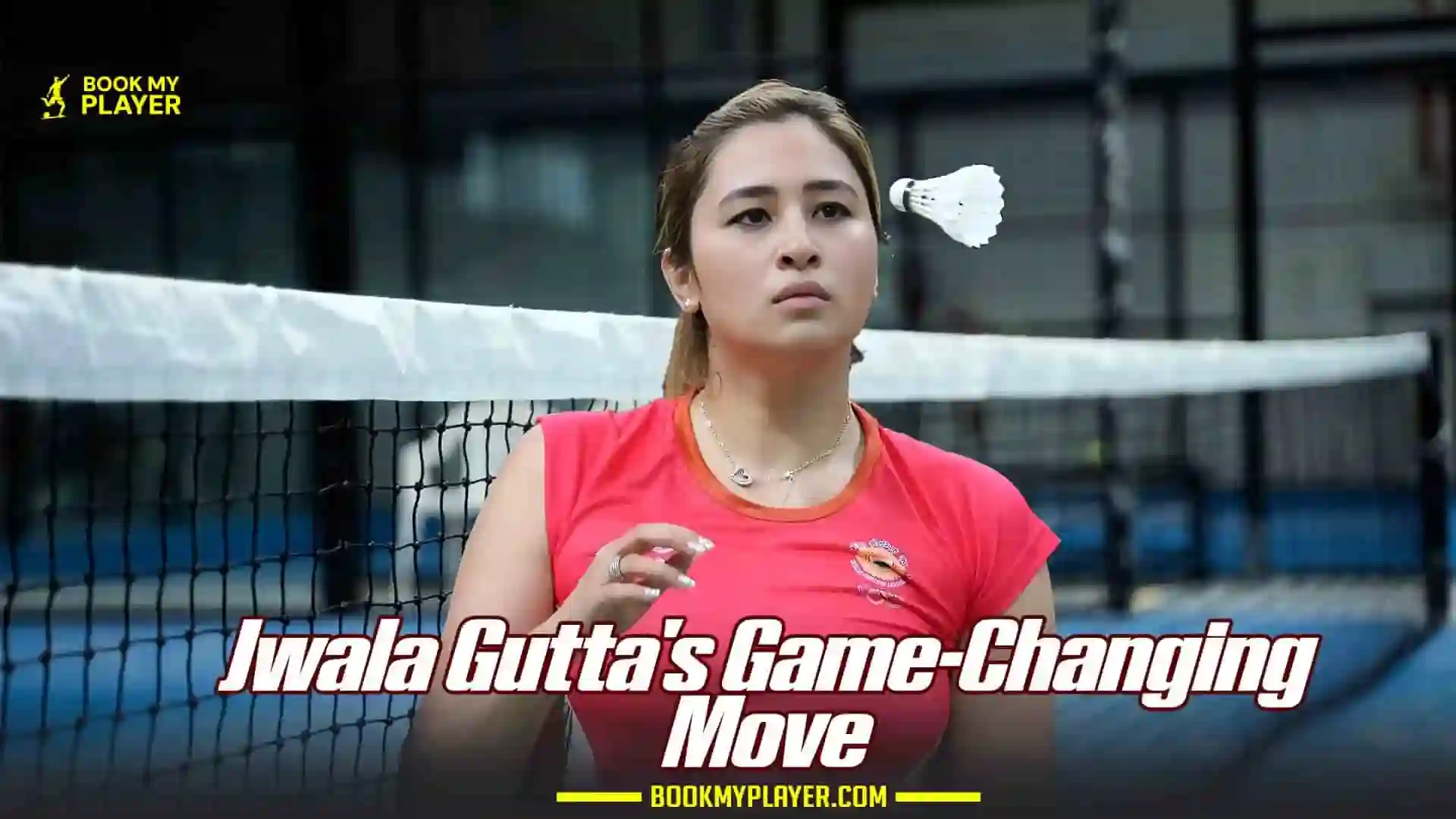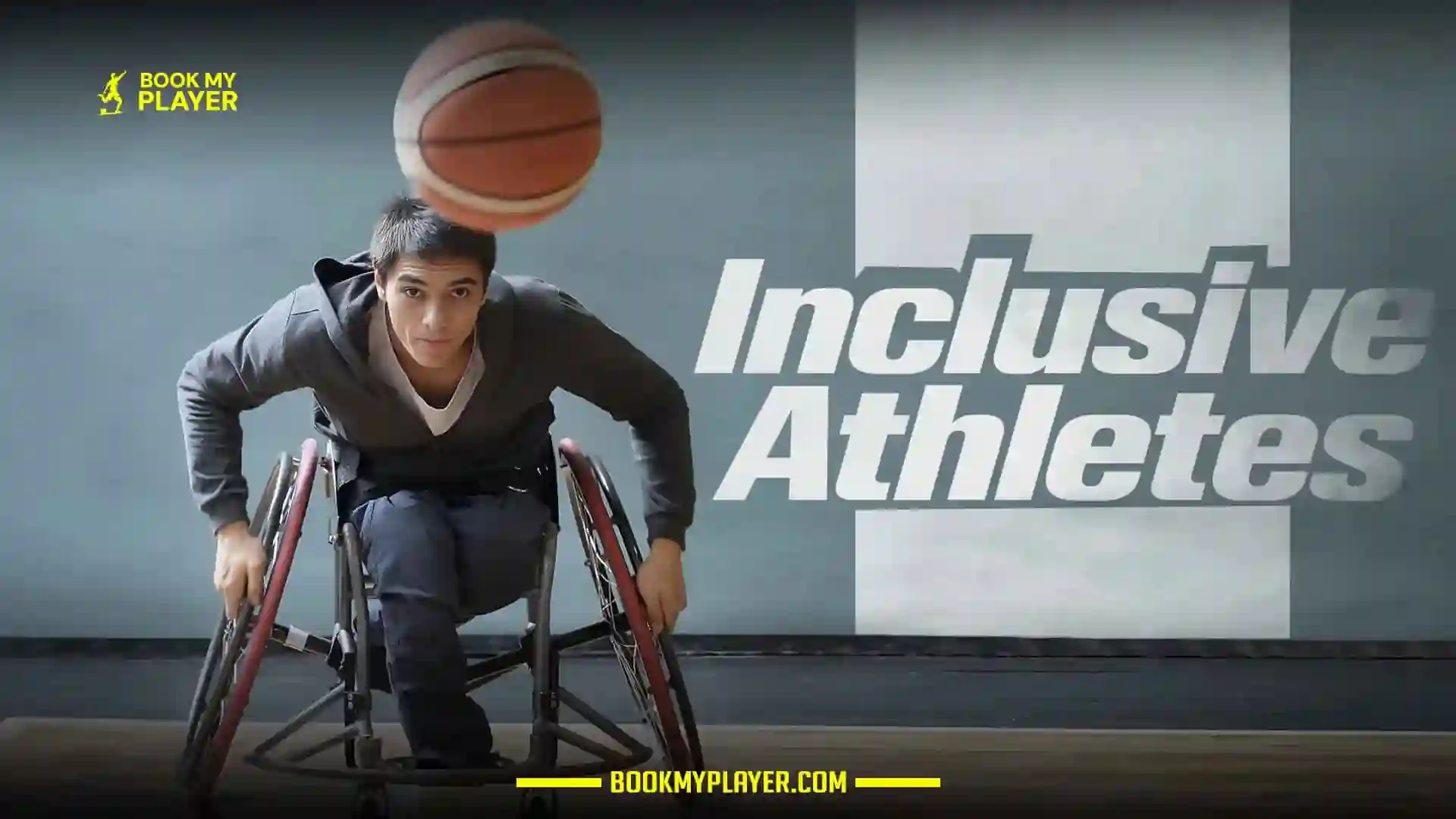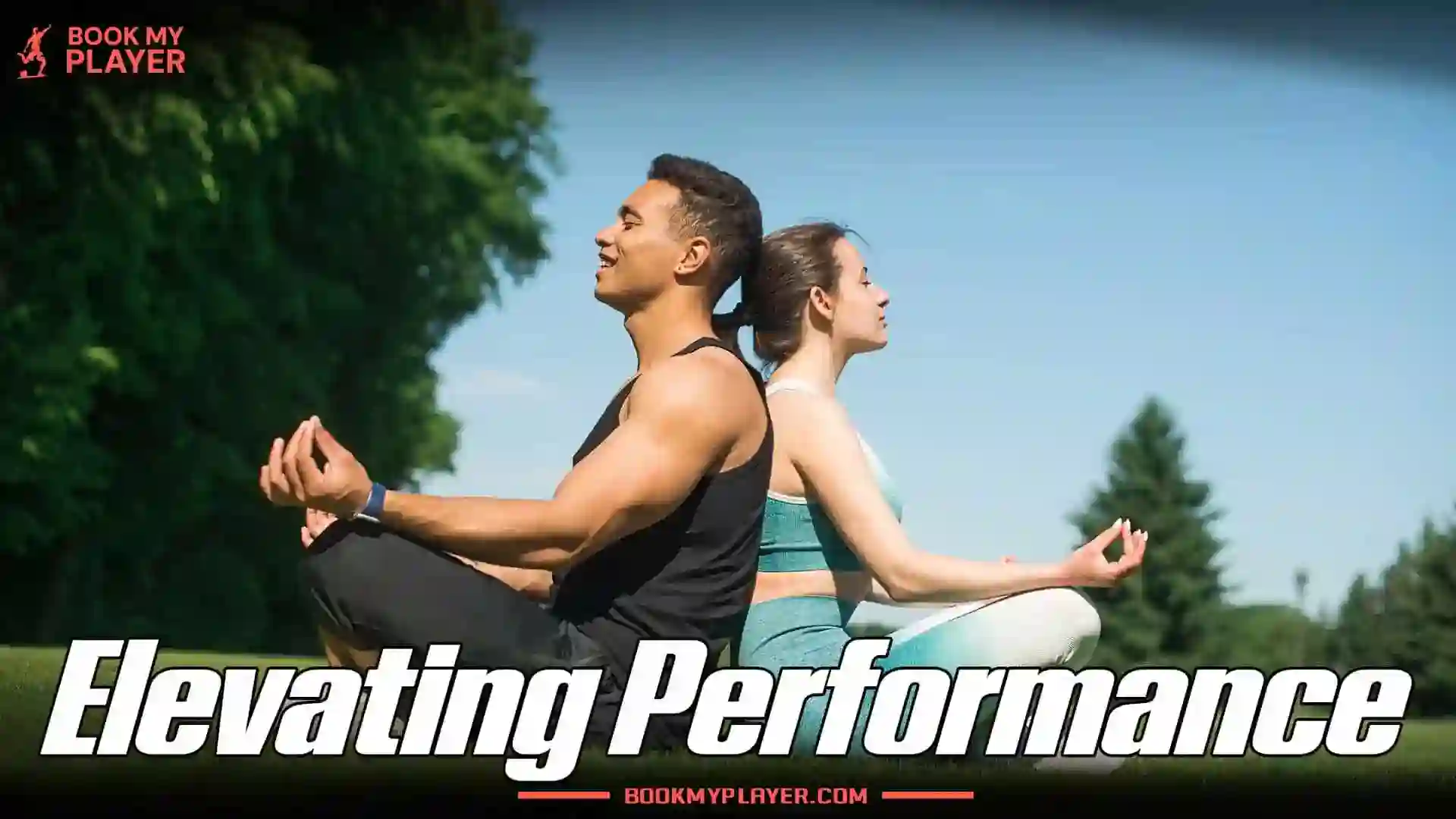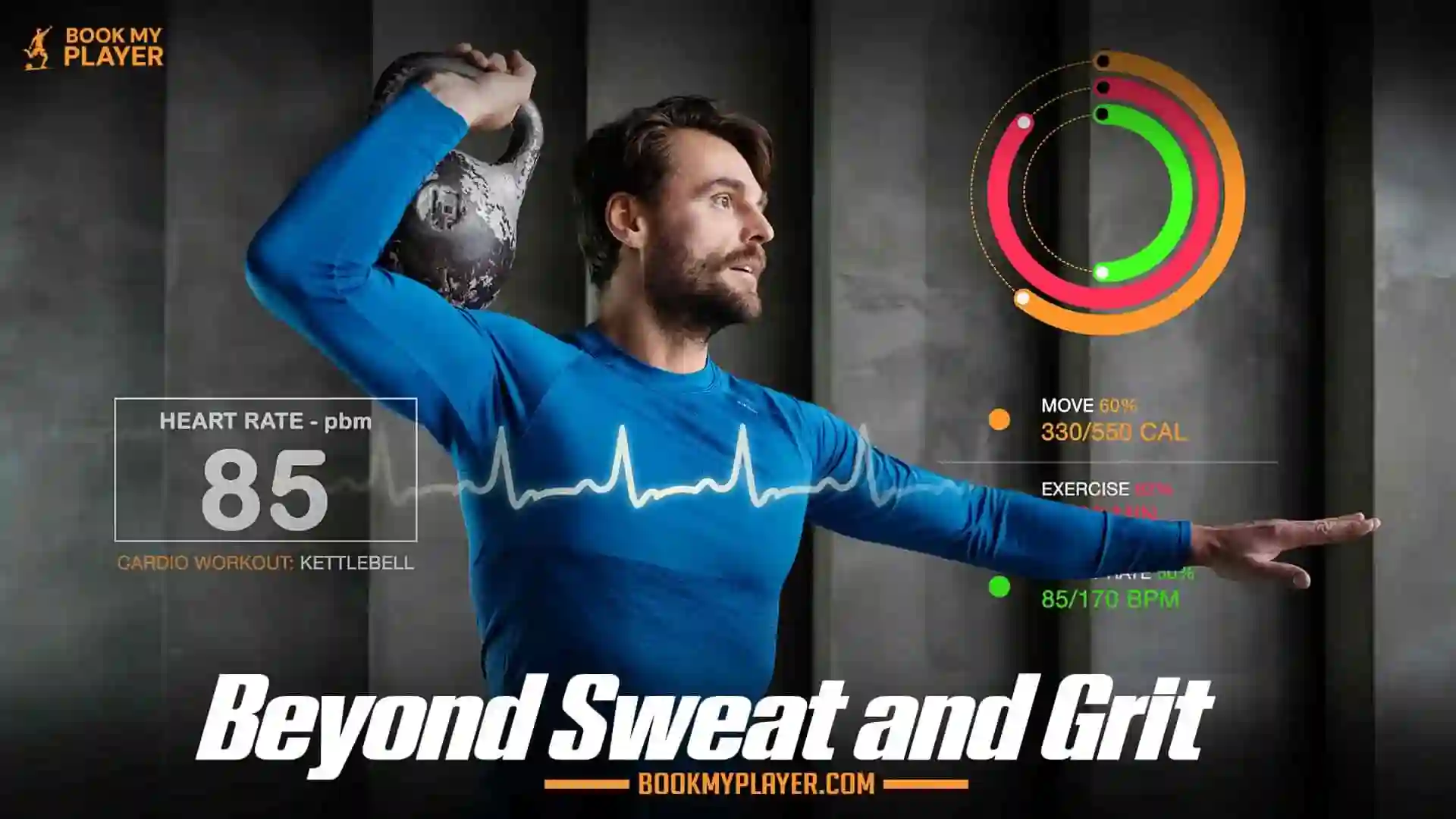
Unlock your full athletic potential with expert advice on fitness, nutrition, mental health, and injury prevention tailored for both amateur and professional athletes. Discover the secrets to strength, endurance, optimal nutrition, mental resilience, and more for peak performance.
In this blog we’ll cover
- Physical Fitness: Building Strength, Endurance, and Flexibility
- Endurance Training
- Flexibility and Mobility
- Nutrition: Fueling Your Body for Success
- Hydration
- Timing and Quality of Meals
- Mental Health: The Psychological Component of Athleticism
- Sleep
- Injury Prevention: Safeguarding Your Athletic Future
- Listen to Your Body
Physical Fitness: Building Strength, Endurance, and Flexibility
Strength TrainingStrength is the cornerstone of athletic performance, enabling athletes to execute powerful movements, maintain stability, and reduce the risk of injury. Incorporating strength training into your routine is crucial, but it's essential to focus on form and technique over lifting heavy weights. Compound exercises like squats, deadlifts, and bench presses target multiple muscle groups, offering the most bang for your buck.
Endurance Training
Endurance is pivotal for athletes across a spectrum of sports, from running to swimming to team sports like football and hockey. Interval training, combining short bursts of high-intensity exercise with periods of rest or low-intensity activity, has been shown to significantly enhance cardiovascular endurance. Consistency and gradual progression in training volume and intensity are key to building stamina.
Flexibility and Mobility
Flexibility and mobility exercises are often overlooked but are critical for optimal performance and injury prevention. Incorporating dynamic stretches into your warm-up and static stretches into your cool-down can improve flexibility. Regular yoga or Pilates sessions can also enhance mobility, balance, and core strength.
Nutrition: Fueling Your Body for Success

Macronutrients and MicronutrientsAthletes' bodies demand a balanced intake of macronutrients — carbohydrates, proteins, and fats — for energy, muscle repair, and overall health. Carbohydrates should be the primary energy source, particularly for high-intensity athletes, while proteins are essential for muscle repair and growth. Healthy fats support cellular function and energy for longer-duration activities. Additionally, micronutrients, including vitamins and minerals, play crucial roles in energy production, bone health, and immune function.
Hydration
Proper hydration is non-negotiable for peak athletic performance. Dehydration can severely impact strength, endurance, and decision-making abilities. Athletes should hydrate before, during, and after exercise, adjusting intake based on the climate and their sweat rate.
Timing and Quality of Meals

The timing of meals and snacks can affect energy levels and recovery. Eating a carbohydrate-rich meal or snack before exercise provides energy, while consuming proteins and carbs after workouts supports muscle recovery and glycogen replenishment. Prioritizing whole foods over processed ones ensures a higher intake of beneficial nutrients.
Mental Health: The Psychological Component of Athleticism
Stress Management and Mental ResilienceAthletic performance isn't solely a physical endeavor; mental toughness plays a significant role. Techniques such as meditation, mindfulness, and visualization can help athletes manage stress, focus on goals, and maintain motivation. A strong support system and occasionally seeking professional help can also contribute to mental well-being.
Sleep
Quality sleep is essential for both physical recovery and mental sharpness. Athletes should aim for 7-9 hours of sleep per night, establishing consistent sleep routines to enhance sleep quality.
Injury Prevention: Safeguarding Your Athletic Future

Proper Warm-up and Cool-downEngaging in a proper warm-up activates the muscles and increases blood flow, reducing the risk of injuries. Similarly, cooling down helps in the recovery process by gradually lowering the heart rate and stretching the muscles.
Listen to Your Body
Understanding the difference between good pain (muscle soreness) and bad pain (injury) is vital. Athletes should listen to their bodies and rest or seek medical attention when needed to prevent minor issues from becoming major setbacks.
Tags
Comments (1)
Weekend Reads
Mastering the Game: 10 Essential Tips for Amateur Athletes in India
January 8th, 2024 6:41 AM UTC
The Rise of Mixed Martial Arts: From Underground to Mainstream
January 3rd, 2024 12:36 PM UTC
Evolution of Football in the NCR
January 2nd, 2024 2:25 PM UTC
The Kings of 64 Squares: Unveiling the Chess Grandmasters of India
December 25th, 2023 6:59 PM UTC
Captaincy Chronicles: Dive into Mumbai Indians' Dynamic Shift!
December 25th, 2023 6:51 PM UTC
Rising from Athletic Setbacks: A Journey of Resilience and Triumph
December 25th, 2023 6:39 PM UTC
Doubles Dynamism: Charting the Course of Emerging Stars in Indian Badminton
December 25th, 2023 6:22 PM UTC
The Unbreakable Bond: Witnessing the Symbiosis Between a Coach and an Athlete
December 25th, 2023 6:10 PM UTC
Jwala Gutta's Game-Changing Move: Celebrating Sindhu, Empowering Future Cricket Stars
December 25th, 2023 5:31 PM UTC
Most Reads
Sanju Samson's Redemption: From Setbacks to Centuries
December 25th, 2023 5:17 PM UTC
Evolution of Football in the NCR
December 25th, 2023 6:00 AM UTC
Sonu Jaglan's Spectacular Performance Leads Gujarat Giants to Victory in Pro Kabaddi League Showdown
December 13th, 2023 8:14 PM UTC
The Future of Sports Technology: Enhancing Athlete Development in the Digital Age
December 13th, 2023 8:08 PM UTC
Strategic Planning for Collegiate Athletics: A Roadmap for Aspiring College Athletes
December 13th, 2023 7:56 PM UTC
Mental Toughness in Sports: Cultivating Resilience for Long-Term Success
December 13th, 2023 7:42 PM UTC
Inclusive Athletes: Ensuring Long Term Development Opportunities For All
December 13th, 2023 7:34 PM UTC
The Role Of Nutrition In Athletic Longevity:A Comprehensive Guide For Athletes
December 13th, 2023 7:16 PM UTC
Balancing Academics and Athletics: A Guide for Student-Athletes and Their Families
December 13th, 2023 7:00 PM UTC
Most Popular
Local Sports Events and Tournaments
February 29th, 2024 12:07 PM UTC
Women in Indian Sports
February 29th, 2024 11:32 AM UTC
Fitness and Health Tips for Athletes: Expert Advice for Peak Performance
February 22nd, 2024 1:38 PM UTC
Revolutionizing the Game: The Future of Sports Training in India with VR and AI Technologies
February 19th, 2024 12:54 PM UTC
Emerging Sports Leagues in India: A New Arena of Athleticism and Engagement
February 17th, 2024 10:40 AM UTC
Rising Sports Stars in India: Unveiling the Future Champions
February 15th, 2024 5:29 PM UTC
Unleashing the Power of Raiders: The Heartbeat of Pro Kabaddi League
February 15th, 2024 6:46 AM UTC
Running Through History: The Delhi Marathon 2024 Experience
February 14th, 2024 11:58 AM UTC
Navigating Success: The Case for Hiring a Personal Coach
January 19th, 2024 5:14 PM UTC
Beyond Boundaries: Unveiling India's Sporting Tapestry with Hidden Gems
January 19th, 2024 5:11 PM UTC
Shattering Glass Ceilings: A Journey Through the Triumphs of Women in Sports
January 17th, 2024 7:00 PM UTC
Decoding the Game: Unveiling the Intricacies of Players' Agents
January 17th, 2024 2:02 PM UTC
Unveiling the Art: Breaking Down the Basics of Boxing for Beginners
January 16th, 2024 8:57 AM UTC
Elevating Performance: The Symbiotic Relationship Between Mental Health and Sports
January 16th, 2024 3:50 AM UTC
Game-Changers: The Evolution of Sports Through Wearable Technology
January 14th, 2024 4:43 AM UTC
Unveiling the Power Duo: Strength Training vs. Cardio for Optimal Fitness
January 12th, 2024 4:43 AM UTC
The Transformative Power of Yoga and Meditation in Sports Performance
January 11th, 2024 6:37 PM UTC
Beyond Sweat and Grit: Unveiling the Future of Sports Training through Technological Mastery
January 9th, 2024 7:28 PM UTC
Unlocking Athletic Potential: The Crucial Role of Post-Workout Recovery
January 9th, 2024 12:00 PM UTC










































Leave a Comment